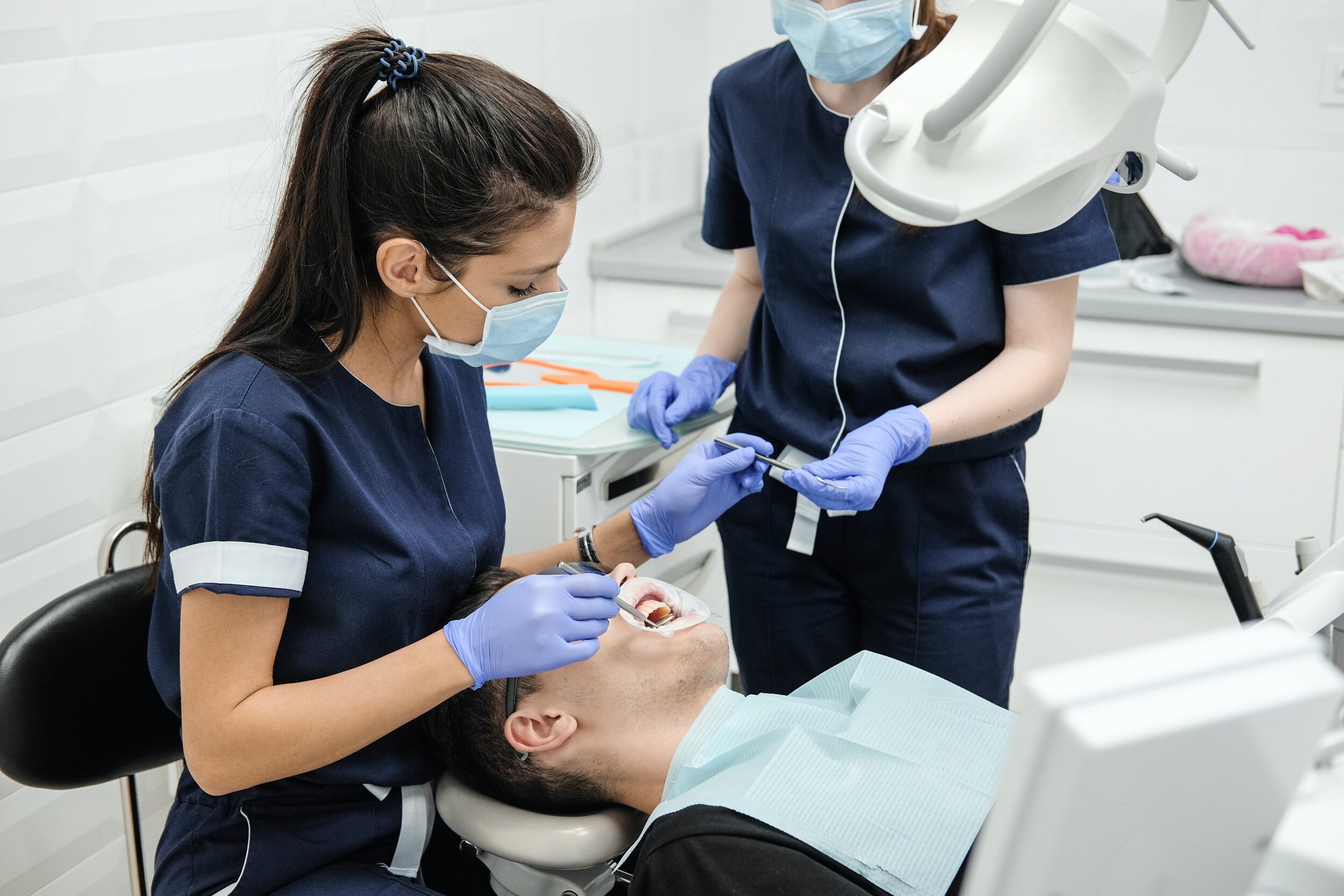Orthodontics has to straighten teeth for thousands of years for purposes other than beauty. While conventional braces are still widely used, modern technology has enabled orthodontics to develop more effective correcting misaligned teeth. The benefit of Invisalign is that it employs cutting-edge technology to straighten your teeth without using metal. Let's understand the Invisalign specials McKinney tx with few points:
The Value Of Straightening Crooked Teeth
Many patients seeking to correct their crooked teeth are concerned about their appearance. Crooked teeth, overbites, underbites, and other dental problems can harm our self-esteem and make us feel self-conscious about our looks. Your teeth, on the other hand, should be straightened for reasons other than looks. If left untreated, crooked teeth might lead to serious dental problems.
Straight teeth minimize the risk of periodontal disease, a gum disease that can destroy jaw bone structure if left untreated. Minimization of damage because straight teeth are easier to clean, allowing the removal of harmful germs. Straight teeth help you to eat properly and prevent your teeth from grinding unevenly. Straight teeth also help to straighten the jaw, reducing aches and pains. Straight teeth can also assist in opening airways, which can help those with sleep problems.
Traditional Braces
Traditional braces are of tiny metal pieces affixed to each tooth and connected by a metal wire. These metal components move teeth into place using different sized wires, bracket replacement, and rubber bands. You'll need to have your teeth x-rayed, scanned, photographed, and molded before obtaining braces. Traditional braces need frequent visits to an orthodontist to ensure that your teeth are in good shape and any necessary modifications.
Cleaning traditional braces is also considerably more difficult. You’ll need specific flossing equipment to floss between the teeth, and cleaning around the brackets is much more complex. You, to keep a frame from breaking off. You're also not allowed to eat specific foods, such as popcorn or caramel.
Invisible Aligners
Invisalign is a modern method of teeth straightening. Dentists can use modern scanning technology to non-invasively scan your teeth and build a pair of aligners on moving into the perfect place. The aligners are virtually undetectable since making them by medical-grade polyurethane resin that matches the ridgelines of your teeth—creating a very aligner that suits you perfectly, allowing you to move your teeth into position gradually.
What Are Invisalign's Benefits?
Traditional braces are more uncomfortable than removable aligners. The harsh edges of conventional metal brackets dig and slash into your lips and cheeks. They can cause painful sores that take a long time to cure. You can try putting wax on the exterior of your brackets. However, it usually comes off after a short time. The creation of Removable aligners is to fit your teeth perfectly. They feature smooth edges constructed of high-quality resin so that no jagged metal will get stuck in your mouth.
Invisible aligners provide more precise control over straightening your teeth due to their unique fit. Throughout your treatment, you'll wear a pair of aligners that gradually move your teeth horizontally, vertically, and rotationally until they're all in the right spot—specialists time each of these motions to ensure the comfiest pattern feasible. Some of the points to know its benefits are :
Make It Possible For Improved Oral Hygiene.
One of the most significant advantages of removable aligners over traditional braces is the ability to better care for your teeth. After all, an apparent mouth is a healthy mouth, and you want the healthiest teeth possible by the conclusion of your treatment. Bits of food and plaque become caught around and within brackets with traditional braces, making it difficult to clean thoroughly. It can lead to gum disease and possibly tooth decay if not handled correctly.
You can take off your Invisalign aligners and resume your usual dental regimen. Brushing, flossing, and flossing may go all be without any additional equipment. You may also brush and clean the interior of your aligner to ensure that no food or germs accumulate. Cleaning the inside of your aligner container is also a good idea so that bacteria does not build up when you remove your aligners to eat, drink, or brush your teeth.
Resolve Dental Issues
Crooked teeth might create more than simply self-consciousness about your smile. You're more likely to suffer a variety of dental issues if your teeth are misaligned. Because your gums do not fit correctly around your teeth, you are more likely to get gum disease if your teeth are spread or crowded. Removable aligners can also help to decrease gum irritation, dental sensitivity, poor breath, and even tooth chipping.
An incorrect bite can result in various issues, ranging from uneven tooth erosion to gum infections. Chewing problems, jaw pains, and even speech impairments can all be caused by an incorrect bite. Cavities, gum disease, and tooth damage can completely correct your bite.
Non- Invasive Scanning
When you receive conventional braces, you'll have an appointment when your teeth are a thorough checkup. Most of the time, this entails inserting plastic bits into your mouth that stretch your cheeks wide apart to enable x-rays, photography, and scanning. Utilization is of these plastic components in the placement and wiring of metal brackets on your teeth. They might irritate your cheeks and feel intrusive after a lengthy period of usage.
Invisalign tx does not utilize intrusive procedures to detail your teeth because of technological advancements. You won't even need to perform traditional impressions that need a mouthful in most cases. Dentists may take a comprehensive scan of your teeth using 3D scanning technology instead of x-rays, appearances, or any other intrusive approach, converting—the scans into 3D printouts used by specialists to construct your custom aligners.
Boost Your Self-Belief
The most apparent purpose people align their teeth is for cosmetic reasons. One of the prime things you see is your teeth, and your grin is the first thing others see when you wake up. You won't feel secure in yourself if you don't feel good about your teeth and smile. There is substantial evidence that straightening your teeth can improve your self-esteem, particularly in teens.
A different benefit of invisible aligners is that they are composed of transparent resin and are custom-made to suit your teeth. Unlike traditional braces, they are virtually undetectable, so few people will notice you are straightening your teeth. Traditional braces are more likely to cause bullying and harassment among teenagers. Using an undetectable aligner to straighten their teeth can help children gain confidence and improve their dental health while shielding them from taunting.
See Whether They're A Great Fit To You!
When it comes to teeth straightening, there are several advantages to utilizing Invisalign. You may straighten your teeth at your rate while eating, drinking, and brushing your teeth regularly. As you gradually straighten your teeth in a hardly visible manner, you will gain confidence in your teeth and smile.
With fewer dental visits and less intrusive procedures, your removable aligners will correct dental problems and prevent severe ones. Contact us at Valley Creek dental Care or visit our website if you're ready for a brighter, healthier smile.






